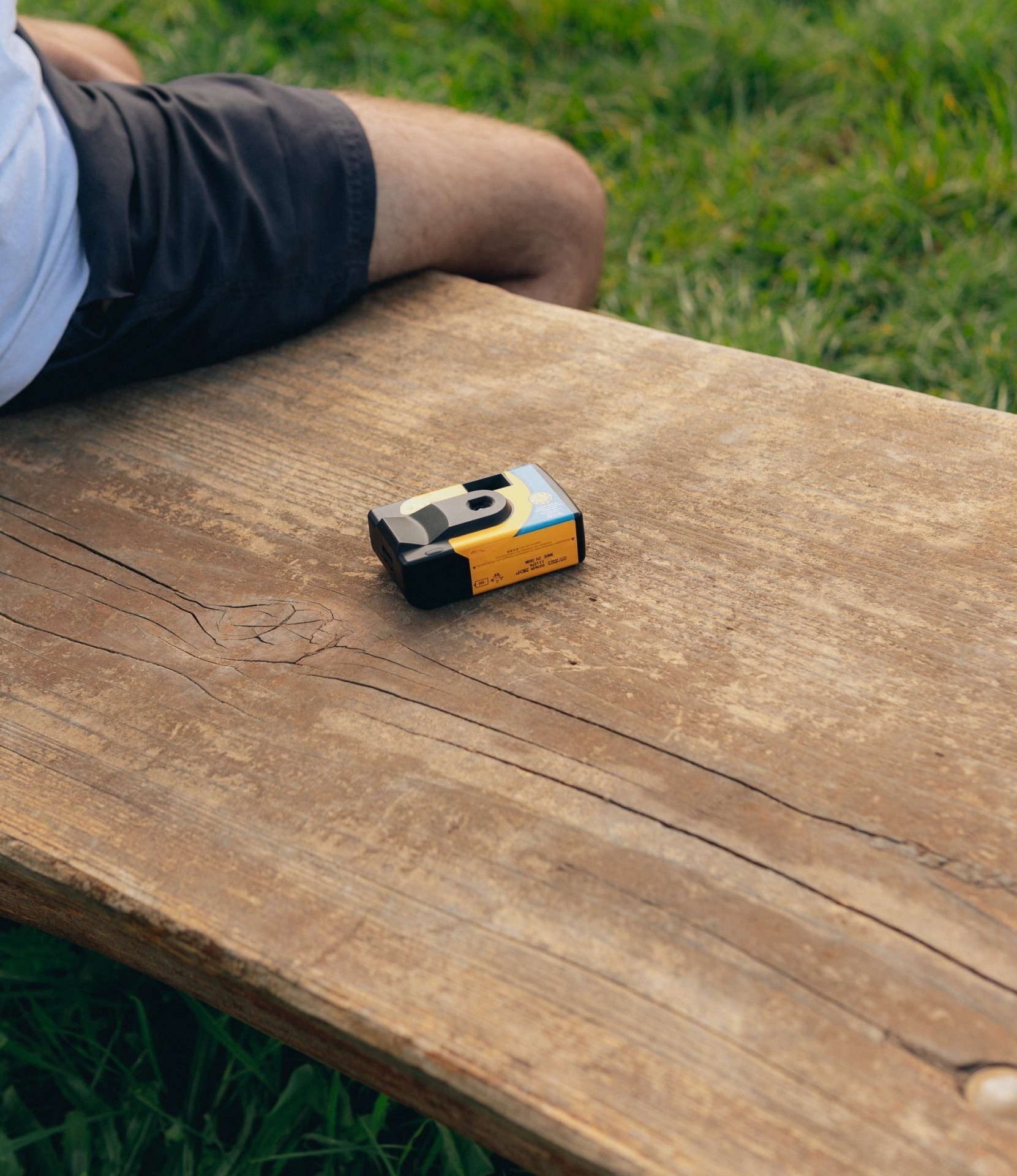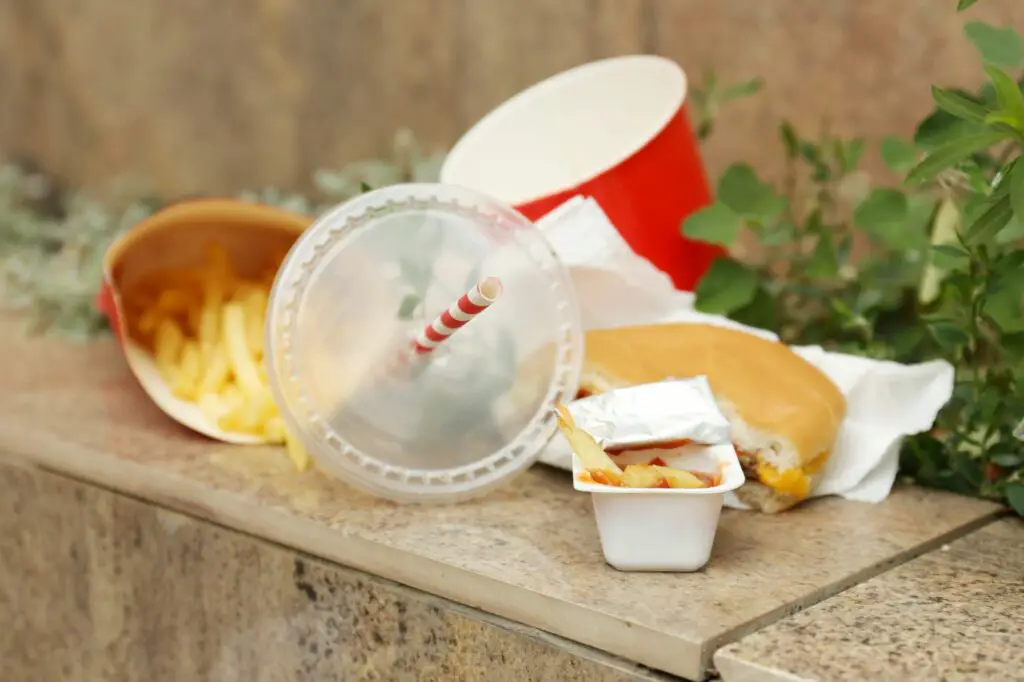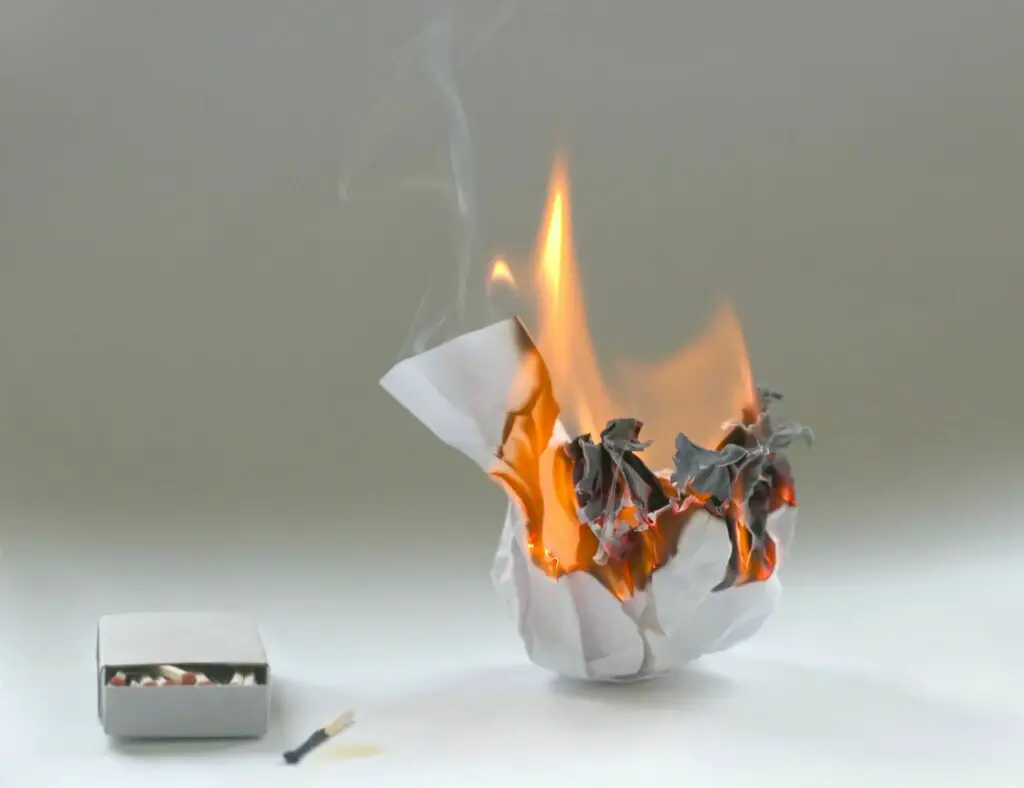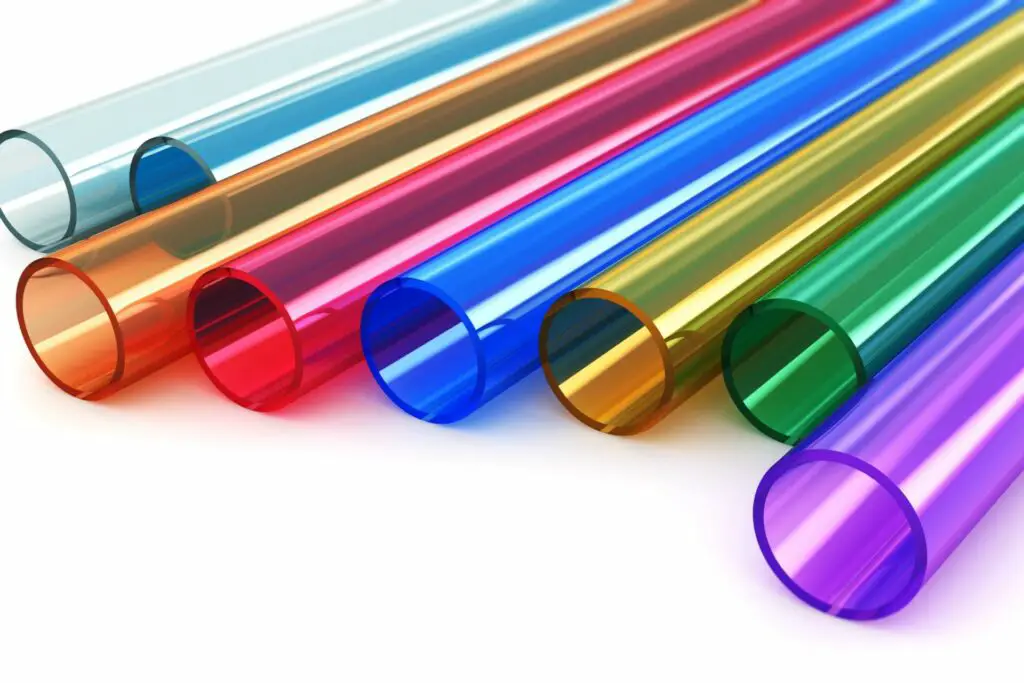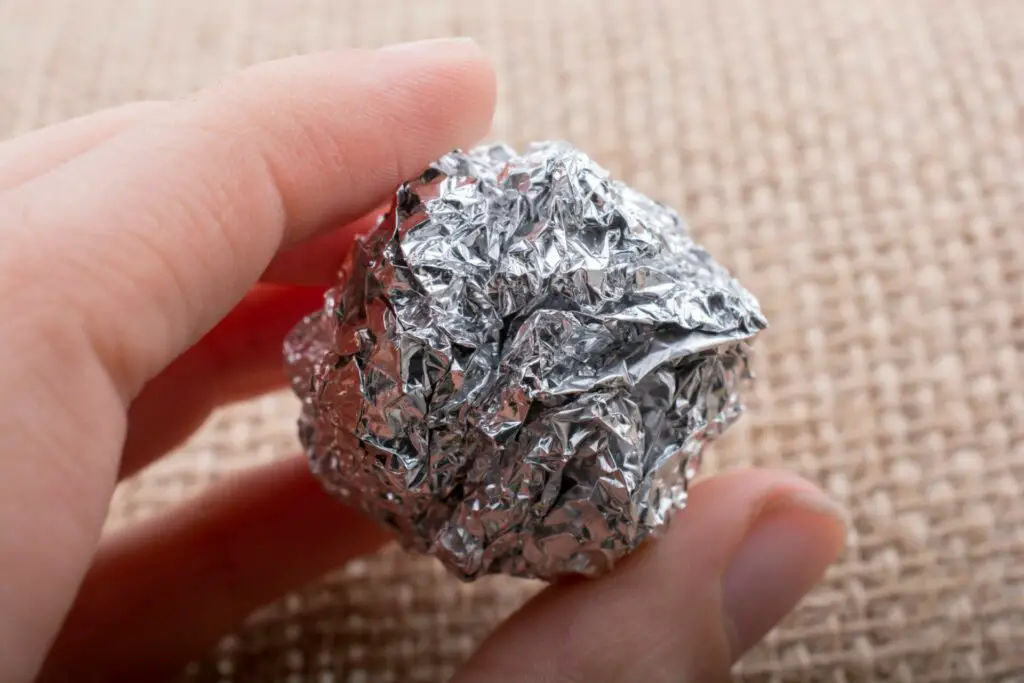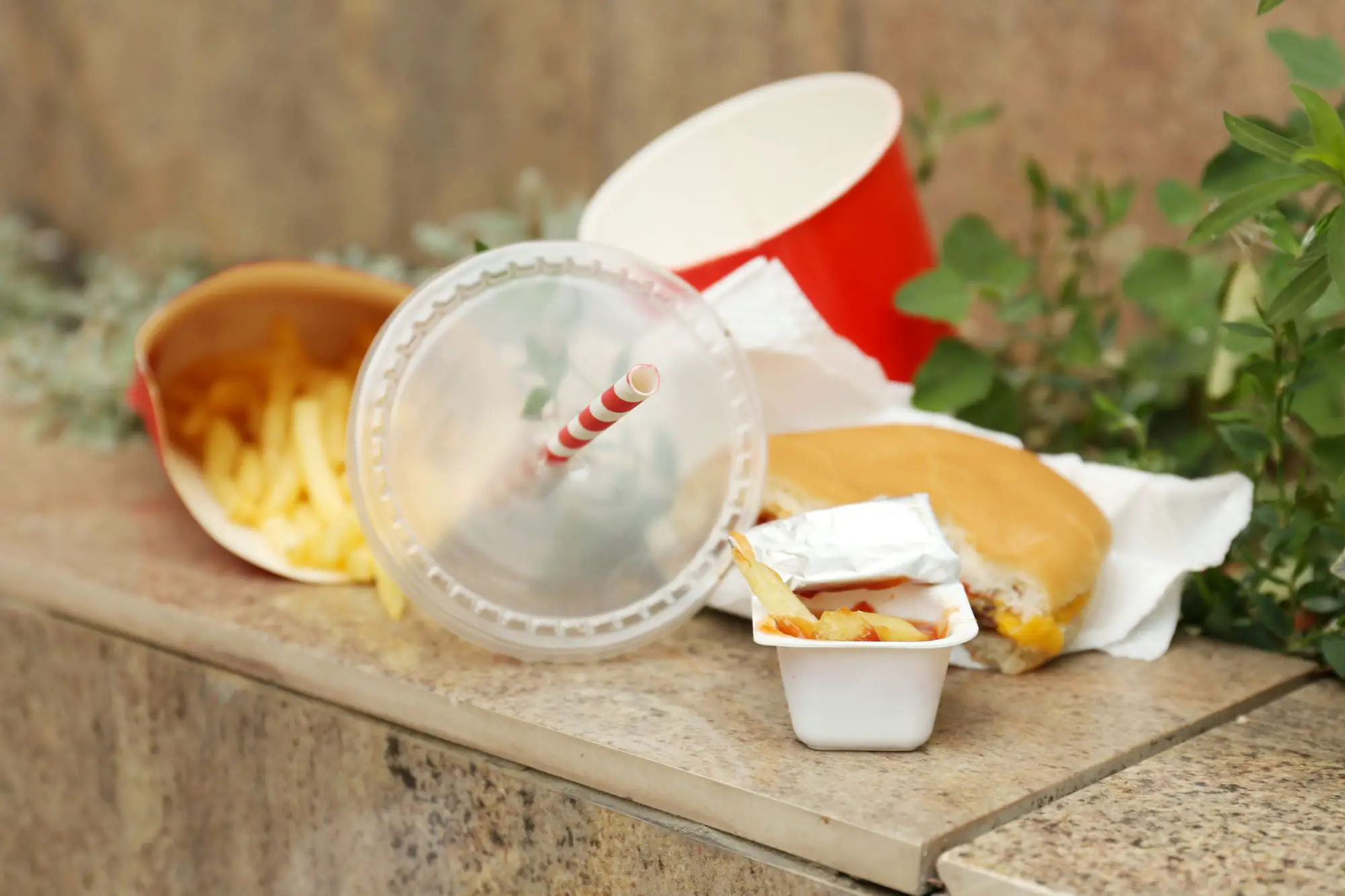Thanks to new technology and most people having cell phones, disposable cameras aren’t as common as they used to be.
However, they are still widely used by many people, especially if you’re a hobby photographer or want to photograph places or objects using only a single roll of film.
But since many disposable cameras are a one-time use product, it leads us to question their eco-friendliness since many single-use items are not eco-friendly.
Disposable cameras are not eco-friendly as far as what they are made of. But, the good news is that most components of the camera are recyclable.
In this article, we’ll take a closer look at how disposable cameras are made, as well as what happens to them after use.
1. What Are Disposable Cameras Made Of?
Disposable cameras are made up of several different components, including:
- Body (Casing)
- Film
- Flash
- Lens
- Shutter
The largest portion of a disposable camera is the casing, which is made from plastic.
The lens of most disposable cameras is generally made from plastic as well, as is the button that you press to take the picture, and the clear lens that covers the flash.
The film itself is made of a base layer of plastic as well that is coated in a gelatin-like substance, as well as a layer of tiny silver halide crystals that detect photons from light.
In addition, several electrical components make up a disposable camera. These components control the flash and shutter and are typically made of a conductive metal such as copper.
But when you look at all of the components of a disposable camera together, you’ll see that the majority of it is made from some type of plastic.
2. Can Disposable Cameras Be Recycled?
Disposable cameras can be recycled, and surprisingly, most of them are recycled as long as you drop them off for the film to be developed.
In fact, Fujifilm has been recycling its disposable cameras since 1990.
The main reason that these cameras are recyclable is that they are mostly made from plastic. They are also easy to take apart and reassemble into new cameras.
Most places at which you drop off disposable cameras should send them off to be recycled after removing the film.
When they are recycled, the label and batteries are removed. The batteries are usually sent off for recycling as well.
The cameras are designed in a way that most of the components can simply be popped out. After separating the components from each other, each part is cleaned if it can be reused.
The plastic part of the camera is usually melted and remolded, then the individual components are put back together and a new battery and film are added.
3. Are Disposable Cameras Biodegradable?
Disposable cameras are not biodegradable, considering that most of their components are made from plastic or metal.
These materials will not decompose, so disposable cameras are not eco-friendly in this aspect.
4. Does A Disposable Camera Have A Battery?
As long as the disposable camera has flash capabilities, it has a battery. Usually, the camera only contains 1 AA or AAA battery.
If the camera does not have a flash, it does not need a battery because the camera can be operated solely by mechanical means.
5. Can I Reuse My Disposable Camera?
Even though most disposable cameras are designed to be single-use, you can reuse them.
You will need to be able to take the camera apart and replace the film and rewind it to use it again.
You can buy replacement films for disposable cameras online. However, buying replacement film is likely more expensive than buying a new disposable camera each time.
Now that you’ve learned that the chances are high that the used camera will be recycled anyway, you can decide if it’s worth the cost and effort to replace the film yourself.
6. How Do You Dispose of Disposable Cameras Properly?
As long as you take the disposable camera somewhere to have the film developed, you don’t have to worry about disposing of it yourself.
The film developer will dispose of it for you, usually through their recycling program.
These cameras can’t be recycled through curbside recycling, though, because of the unique process that is used to recycle them.
If you remove the film yourself to be developed but don’t take the whole camera with you, then the only way to dispose of it is to throw it away.
This is not ideal, since they will go to a landfill and won’t biodegrade by any means and the batteries may leak hazardous chemicals over time.
It’s better for the environment to replace the film in a disposable camera and reuse it than have it go to a landfill.
7. What Happens to Disposable Cameras After You Throw Them Out?
If you take the film out of the camera and throw the rest of the camera out, the only thing that will happen is that they will make their way to a landfill.
Once in the landfill, the camera will sit there for an indefinite period of time.
That’s why, unless you plan on replacing the film yourself and reusing the disposable camera, it is best to take the whole thing to the developer.
That way, the camera will likely be recycled.
8. Are Disposable Cameras Less Eco-Friendly Than Other Cameras?
Disposable cameras are less eco-friendly than other cameras for one simple reason: they are designed for one-time use.
Even though the cameras can be recycled, they still aren’t as eco-friendly as other cameras such as digital cameras that can be reused over and over again.
Yes, recycling the plastic components from disposable cameras indeed cuts down on the number of new plastic materials that have to be used to make them.
But, recycling plastic still uses a lot of energy, not to mention having to replace the battery and film each time.
Even though digital cameras are made of some plastic materials as well, they tend to be more durable and last longer than disposable cameras.
And with digital cameras, either stand-alone or on your phone, you can take pictures, upload them, delete them, and then take more pictures.
Yes, the batteries need recharging or replacing for digital cameras to work, but this is still more eco-friendly because it uses less overall energy and resources.
And, you can take as many photos as you want for as long as the camera lasts without ever having to replace film.
9. Are Disposable Cameras Sustainable?
Even though disposable cameras are made from plastic, a non-renewable resource, they are somewhat sustainable considering that the plastic used to make them is usually recycled.
However, this is only true if the cameras are disposed of in a way that allows them to be recycled.
If the cameras end up in a landfill instead of being recycled, then they are not sustainable at all.
Even if they are recycled, considering that batteries and film have to be replaced in them, they are still not as sustainable as other types of cameras that have rechargeable batteries and film that doesn’t have to be replaced.
2 Eco-Friendly Alternatives to Disposable Cameras
Disposable cameras are not the most eco-friendly or sustainable cameras out there.
Here are some options if you’re looking for a more eco-friendly camera.
1. Replacement Film Cameras
One problem with disposable cameras is that even though you can technically replace the film in them yourself, it involves taking the camera apart.
Replacement film cameras look and work pretty much the same way as disposable cameras, but they are easier to replace the film in.
One example is the Snap LF-35M camera, which includes eco-friendly replaceable stickers.
A tree is also planted for every Snap camera that is manufactured, in addition to donating a portion of sales to global reforestation projects.
2. Digital Cameras
If photography is something you do regularly, then it might be worth investing in a digital camera.
Yes, they are more expensive upfront, but they can be used to take as many pictures as you like without having to worry about having the film developed.
Conclusion
Even though most disposable cameras are capable of being recycled, they are not the most eco-friendly option when it comes to cameras.
They are made from plastic, which is a non-renewable resource, and the film and batteries in them have to be replaced for them to be reused.
If you do take a lot of pictures and want to be more eco-friendly, there are better options out there.
But if you still prefer to use a disposable camera, make sure you either replace the film in it yourself or take the whole camera when you have the film developed.
That way, the camera can be reused or recycled instead of thrown away.
You Might Also Like…
- Is Fast Food Bad for the Environment? (& What You Can Do)
- Is Fabric Softener Bad for the Environment? (+5 Eco-Friendly Options)
- Is Fuel Dumping Bad for the Environment? (& How Often It Happens)
- Is Electricity Generation Bad for the Environment? (What You Should Know)
- Is Dry Cleaning Bad for the Environment? (4 Surprising Facts)
- Is Diamond Mining Bad for the Environment? (Important Facts)
- Is DEET Bad for the Environment? 4 Effects (You Should Know)
- Is Cat Litter Bad for the Environment? (5 Common Questions)
- Is Burning Cardboard Bad for the Environment? (6 Facts)
- Is Burning Paper Bad for the Environment? (6 Surprising Facts)
- Is Burning Leaves Bad for the Environment? (7 Quick Facts)
- 4 Natural Cleaners for Quartz Countertops
- 6 Eco-Friendly Acrylic Paint Brands (For Sustainable Artists)
- 5 Eco-friendly Alternatives to Acrylic Paint (& How to Make Them)
- Is Acrylic Paint Bad for the Environment? (7 Quick Facts)
- Is Acrylic Yarn Bad for the Environment? 8 Crucial Facts
- Is Acrylic Bad for the Environment? (8 Quick Facts)
- Is Aluminum Foil Bad for the Environment? 7 Quick Facts
- Is Bleach Bad for the Environment? 6 Crucial Facts
- Is Lithium Mining Bad for the Environment? 6 Crucial Facts

